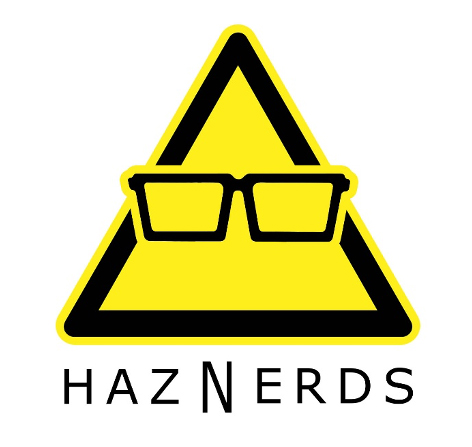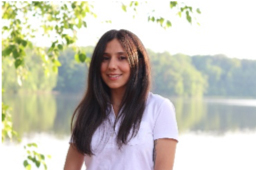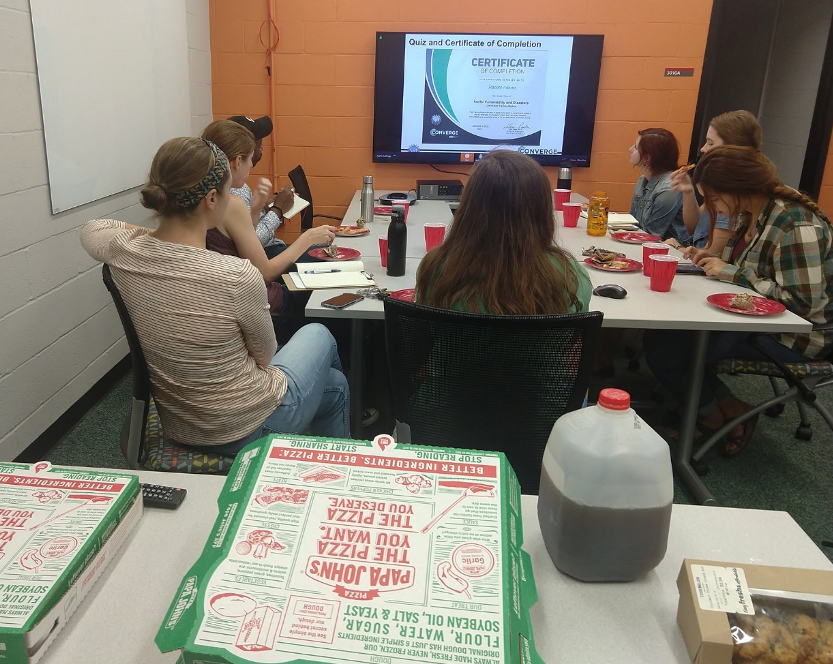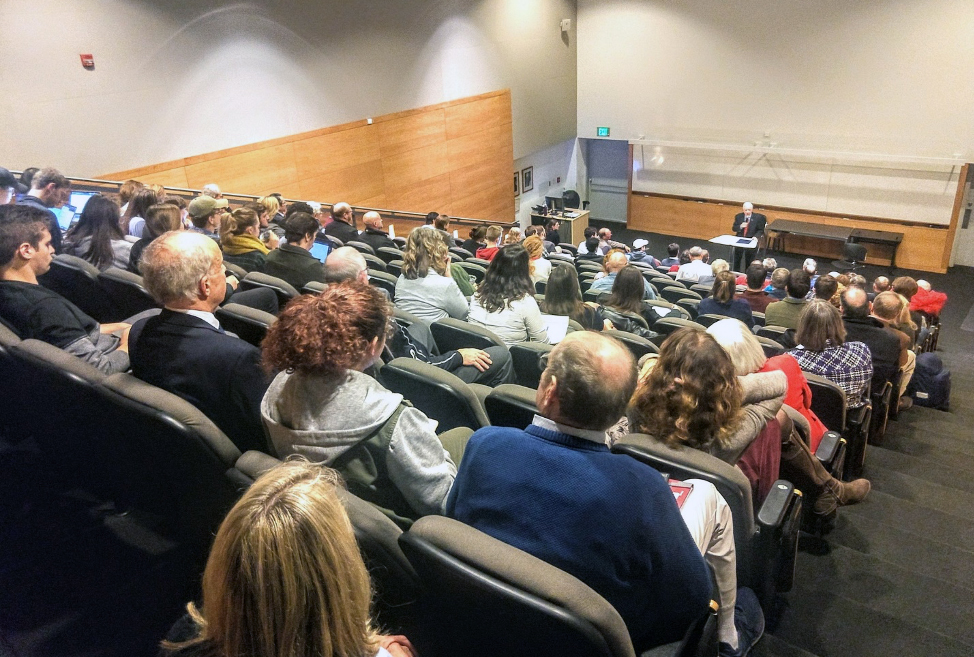By Olivia Vilá, North Carolina State University
Once a week for the first semester of my PhD program, I would commute from Raleigh to Chapel Hill and back on the public bus, since I didn’t have a car, to be able to attend Dr. Gavin Smith’s Planning for Natural Hazards and Climate Change Adaptation course at the University of North Carolina at Chapel Hill. The return journeys were especially long and tiresome, since the express route had stopped running by the time class ended. Despite arriving home physically exhausted, often after 11 p.m., I always walked through the door feeling mentally energized and inspired. This was because I had spent the evening learning about natural hazards and disasters, not just from Dr. Smith, but from dozens of graduate students from diverse academic backgrounds, including planning, law, economics, anthropology and geography. Class discussions were impossibly rich as a result of the many perspectives represented in the class, and often illuminated the complexity of the issues being discussed. Our dialogues were true interdisciplinary experiences that planted the seeds for HazNerds, a graduate student group at North Carolina State University (NCSU) for students interested in hazards and disasters.
The need for a hazard student group was particularly prevalent at NCSU, where graduate students from across the university do hazards-related research but can be disconnected from those who shared similar interests and goals. I began to understand the broad spectrum of graduate students engaging in this type of research when I started working on an interdisciplinary disaster recovery research project after Hurricane Florence in 2018. Not only did I begin to realize there were other “hazard nerds” like me, I was suddenly working side by side with them. At this point, I began to acknowledge a support gap for students like myself. Although my department, the Department of Parks, Recreation, and Tourism Management, has a great support system for their graduate students, the resources and opportunities they provide to graduate students are, understandably, not tailored to the needs of those engaging in hazard and disaster-related work. This same gap was felt by many other graduate students across many departments on campus. At the time, I relied on resources and opportunities relayed by The Natural Hazards Center (NHC) at the University of Colorado. While they are an excellent resource, my interactions with the NHC felt distant, considering they were nearly 2,000 away and only accessible digitally.
My experiences attending Dr. Smith’s class, engaging in interdisciplinary disaster research, and using digital resources through the NHC, inspired me to create HazNerds. The group’s mission is to foster interdisciplinary teamwork by bringing together graduate students in hazard-related fields who can draw from each other for motivation, advice and support. HazNerds aims to:
- Serve as a source for information, resources and opportunities for graduate students interested in hazards research and work.
- Identify and connect interested graduate students with faculty who are doing hazard and disaster research.
- Emphasize the importance of ethics in disaster research and work.
- Encourage the socialization among students from different disciplinary backgrounds who share an interest in hazards and disasters.
Dr. Smith’s arrival at NCSU – he joined NC State’s College of Design last spring – helped catalyze the formation of HazNerds. Dr. Smith is currently working on initiating a Coastal Resilience Cluster, to bring together faculty, students and engagement organizations around a diverse set of environmental issues. As part of this effort, he is also developing an interdisciplinary Graduate Certificate in Natural Hazards Resilience at NCSU, intended to help build intellectual and professional networks through formal graduate coursework. In the coming months, as these networks and programs grow and materialize, HazNerds will collaborate with Dr. Smith and serve as the graduate student representative for the Coastal Resilience Cluster and graduate certificate.
HazNerds began to formally meet last semester, and we were busy! The group co-led a bi-weekly reading group with the Southeast Climate Adaptation Science Center; hosted a social at Raleigh Brewing Company; organized a viewing of the NHC CONVERGE Social Vulnerability and Disasters training module webinar; promoted and attended relevant talks on campus; created a list of classes on campus that would be of interest to HazNerds and sent out a weekly email that notified graduate students of hazard-related events, digital resources and funding and job opportunities. Most importantly, we began to establish momentum, make connections across campus and identify students who are interested in leadership positions within HazNerds. This semester, our attention has shifted to formalizing HazNerds into an official student organization within NCSU, which involves creating an organization constitution and nominating and voting in our representatives. This formal process will allow HazNerds to receive university funding, fundraise, and leverage other university resources. As soon as this critical step in complete, HazNerds will be able to hit the ground running.
If you are a North Carolina-based graduate student interested in registering for the weekly HazNerds email listserv, taking on a leadership position within HazNerds or collaborating with HazNerds, please email Olivia Vilá at ofvila@ncsu.edu.
Olivia Vilá is a PhD student in the Department of Parks, Recreation and Tourism Management at NCSU. She uses qualitative and participatory research methods to explore local hazard mitigation capacity, and hopes to be in a position where she can use social science to inform policy and mitigation practices at the local, state and federal levels.



